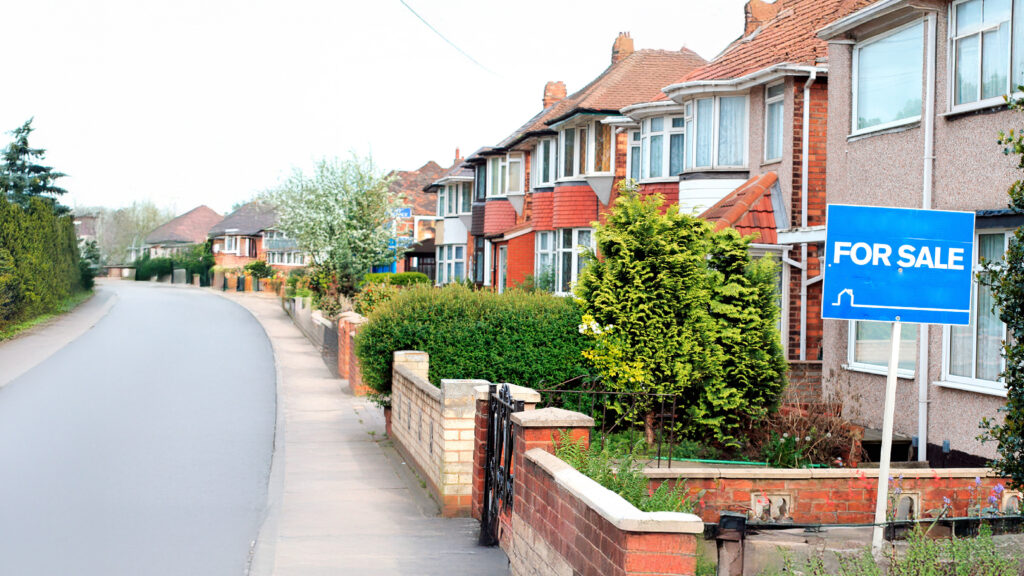
Is Gazumping Illegal?
In the unpredictable UK housing market, the term gazumping can strike fear into the hearts of buyers and cause confusion for sellers. If you’re trying to sell your house fast or secure your dream home, being gazumped can throw a wrench into your plans and cost you financially.
In this guide, we’ll explain exactly what gazumping means, answer the crucial question, Is gazumping illegal? and explore how you can avoid falling victim to this frustrating and sometimes devastating practice. Plus, we’ll show how working with a trusted cash buyer can remove all the uncertainty from your sale or purchase.
What is gazumping?
Let’s start with the basics: what is gazumping?
Gazumping happens when a seller accepts an offer from a buyer but then decides to accept a higher offer from someone else before contracts have been exchanged. The original buyer is then gazumped, often after paying legal fees, surveys, and mortgage applications.
Although deeply frustrating, the agreement is not legally binding until both parties sign contracts. Until then, the seller is free to consider other offers, resulting in the phenomenon known as gazumping.
Is gazumping illegal in the UK?
A common question people ask is: is gazumping illegal?
The answer is no, as gazumping is not illegal under UK law. In England and Wales, a property transaction is only legally binding after the contracts are formally exchanged. Before that point, either party can withdraw or change the agreement, making gazumping legal (though ethically questionable).
So, while gazumped buyers are frequently angry and misled, they have little to no legal recourse.
Why does gazumping happen in the property market?
The main reason gazumping happens is simple: the seller receives a better offer. If the market is competitive, a property might attract higher bids even after an initial offer has been accepted. Since nothing is legally locked in until contracts are exchanged, sellers often seize the opportunity.
Buyers who get gazumped often lose out not only on the home but also on the money they’ve spent up to that point, sometimes thousands of pounds.
What does gazumping mean for sellers and buyers?
Understanding what gazumping means is important for both sides of the transaction:
- Sellers might be tempted by a higher price but risk losing trust and delaying the sale.
- Buyers may find themselves outbid late in the process, losing time and money with little warning.
So, while not illegal, gazumping is widely seen as unfair and stressful, fuelling the need for more protective measures during property transactions.
Should you accept a gazumping offer as a seller?
Sellers might wonder whether to accept a gazumping offer. While a higher bid is attractive, there are risks:
- The new buyer may not be as committed.
- You could delay your timeline or disrupt a chain.
- It can damage your reputation or result in negative press (especially with social media).
Sellers should carefully consider these risks, and buyers should understand that making a gazumping offer may not always be appreciated, even if it works.
How can buyers avoid getting gazumped?
Here’s how to reduce your chances of being gazumped:
Act fast
The faster you move after offer acceptance, the less likely someone else will swoop in. Get your solicitor and mortgage lender lined up early.
Be financially prepared
Having your mortgage in principle sorted and demonstrating that you’re a serious buyer can reassure the seller that you’re less risky.
Build trust
Maintain open communication with the seller and their agent. A strong relationship can prevent gazumping in some cases.
Use a lock-out agreement
Although not standard, a lock-out agreement (aka exclusivity agreement) can stop the seller from negotiating with other buyers for a fixed period.
Keep written records
Make sure your offer and all agreements are documented. It won’t stop gazumping, but it can help maintain transparency.
Sellers: how to prevent gazundering (the reverse of gazumping)
Gazumping affects buyers, whereas gazundering, which occurs when a buyer lowers their offer just before exchange, affects sellers. Here’s how to prevent it:
- Price your property fairly from the start.
- Request a holding deposit to lock in buyer commitment.
- Use legal agreements where possible to protect both sides.
- Work with a trusted estate agent who knows how to handle negotiations professionally.
Avoid gazumping entirely with Sell House Fast
Want to skip the risk of being gazumped or gazundered altogether? Sell House Fast provides a quick, secure, and stress-free way to sell your property.
As cash buyers for houses, we can purchase your property in days, not weeks or months. With us, there are:
- No delays
- No estate agents
- No risk of gazumping
- No chain complications
Benefits of choosing Sell House Fast
Here’s why more sellers choose us to avoid being gazumped:
- We buy any house – no matter its condition or location.
- Cash offers made quickly – often within 24 hours.
- Transparent, hassle-free service with no hidden fees.
- Completion in as little as a few weeks.
- Peace of mind: once you accept our offer, it’s final.
- Tell us about your property via our online form.
- Receive a no-obligation cash offer.
- Agree to the sale—we handle the legal work.
- Complete quickly—get cash in hand.
It really is that simple. No estate agents. No long waits. No being gazumped. Just a smooth, reliable sale.
FAQs About Gazumping in the UK
What is gazumping in property sales?
Is gazumping illegal in the UK?
What does gazumping mean for buyers?
How can I avoid being gazumped?
• Use a lock-out agreement
• Get mortgage pre-approval
• Work with reliable professionals


